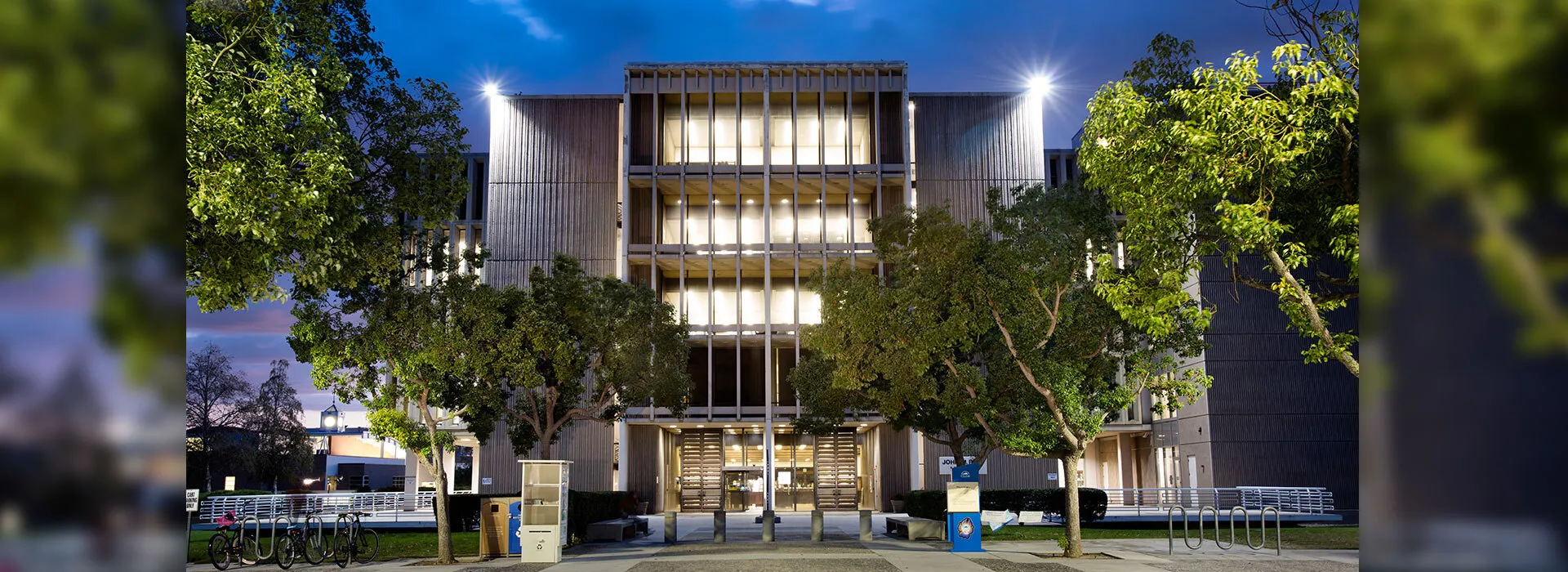
Fully 98 percent of the incoming first-time freshman at Cal State San Bernardino who participated in Coyote First STEP in summer 2015 would recommend the program to other students.
That’s one of the notable results in the Coyote First STEP 2015 Preliminary Assessment Report, released earlier this week.
Other highlights include 92.9 percent of the 1,658 participants progressed at least one level toward readiness for college mathematics, with 950 students making themselves fully GE-math-ready. In pre- and post-tests, the proportion of students who rated themselves “confident” or “very confident” in their own mathematical abilities increased from 39 percent to 85 percent. Students agreeing or strongly agreeing that they felt able to handle difficult mathematics increased from 53 percent to 80 percent.
Designed with the idea of adapting national research on student success to local conditions, Coyote First STEP was an ambitious attempt to give CSUSB students the best possible start in college. CSUSB made it mandatory for all incoming freshmen with an Early Start Math requirement to live on-campus for three or four weeks (depending on their math course). Students were divided into cohorts of 22.
Each cohort took math classes together, attended peer-tutor-guided math practice sessions together, and took the Introduction to College Literacies course together.
Nearly 200 co-curricular events were offered on evenings and weekends, which in total produced 35,000 hours of student participation in activities designed to promote a sense of belonging, help students navigate university systems, promote familiarity with the campus and its resources, guide students in planning their degrees, and provide assistance in understanding how to manage money in college.
Given that 54 percent of the university’s students are the first in their families to attend college and 65 percent come from low-income earning households, CSUSB made the commitment to provide this program entirely free to students.
“It was wonderful to see thousands of parents and friends of our students on move-in day,” said Alysson Satterlund, CSUSB associate vice president and dean of students. “The co-curricular and support programs offered helped students make friends, become attached to our university and feel confident in their ability to succeed here.”
According to figures released by Muriel Lopez-Wagner, CSUSB assistant vice president for Institutional Effectiveness, 55 percent of CSUSB’s incoming first-time freshmen test below college ready in mathematics. Historical data show that students who begin at CSUSB unprepared for general education mathematics have only a seven percent chance of graduating within four years.
One goal of Coyote First STEP was to help more incoming freshmen start their first fall term ready for college mathematics, assisting not only the students but CSUSB and the California State University meet targets for increasing graduation rates and decreasing achievement gaps.
“Coyote First STEP fits within the goals established in CSUSB’s newly-established Strategic Plan,” said Juan Delgado, interim provost and vice president for Academic Affairs. “In addition to enhancing student success, CFS contributes to the effective use of university resources.”
Students’ achievements in CFS translate into CSUSB not having to offer 2,040 seats (about 60 sections) of pre-college mathematics that otherwise would have been needed. In addition to accelerating students’ paths to graduation and freeing up classroom space, this non-usage of class seats amounts to more than $625,000 in savings to CSUSB in instructionally-related costs.
Students themselves will save the equivalent of about $2.88 million in tuition by avoiding the need to take those pre-college units.
The CSU Office of the Chancellor agreed to fund about half of the cost of CFS (CSUSB will receive $1.4 million of the $8 million in lottery funds the CSU devotes to Early Start each year, system-wide).
Brian Haynes, vice president for Student Affairs, noted that three school districts in the region (San Bernardino City, Riverside and Moreno Valley) used their Local Control Funding to assist with CFS as a college-readiness initiative for their graduates.
“We are grateful to our public school partners for contributing a total of $168,000 to Coyote First STEP this year, and we anticipate additional school districts will partner with us on this initiative in future years,” said Haynes.
Given the external contributions and the savings created, the effective net cost of CFS to CSUSB will be about $100,000.
“The investment in time, effort and resources that we made in our students will pay off in better retention and graduation rates,” said Dr. Tomás Morales, president of CSUSB. “The investment of time and effort students made in themselves is equally important and is already producing successful outcomes in the classroom. “This program contributes to our regional goal of increasing the proportion of adults with college credentials, which will have positive benefits for individuals, families and communities throughout the Inland Empire.”
“The success of Coyote First STEP can be attributed to the incredibly hard work of hundreds of people — faculty, staff and student employees—from the math and English departments, Housing and Residential Life, Student Engagement, Admissions, testing office, College of Extended Learning, Undergraduate Studies, Administration and Finance, and many other offices,” said Bill Vanderburgh, associate vice president and dean of Undergraduate Studies.
The complete report is available online at 'Coyote First STEP 2015 Preliminary Assessment #1.' Further assessments of CFS will be released as they become available.
Set in the foothills of the beautiful San Bernardino Mountains, CSUSB is a preeminent center of intellectual and cultural activity in inland Southern California. Celebrating its 50th anniversary in 2015, CSUSB serves more than 20,000 students each year and graduates about 4,000 students annually.
For more information about Cal State San Bernardino, contact the university’s Office of Strategic Communication at (909) 537-5007 and visit news.csusb.edu